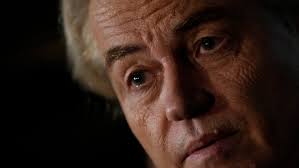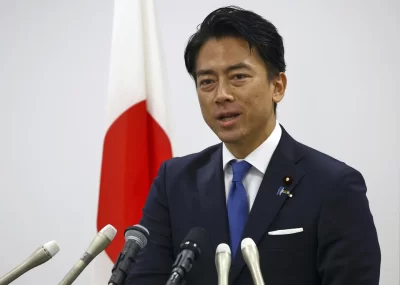
Anti-Islam populist Geert Wilders said Thursday that he is ready to join the next Dutch coalition government after he surged to a huge election victory that marked a stunning lurch to the far right for a nation once famed as a beacon of tolerance.
The result is sending shockwaves through Europe, where extremist nationalist ideology is putting pressure on democracies that now face the possibility of having to deal with the first far-right prime minister of the Netherlands.
“It is going to happen that the PVV is in the next Cabinet,” Wilders said, using the Dutch abbreviation for his Party for Freedom.
With nearly all votes counted, Wilders’ party was forecast to win 37 seats in the 150-seat lower house of parliament, more than double the 17 the party secured in the last election.
Wilders got a standing ovation, cake and sparkling wine when he met his lawmakers at the parliament building Thursday morning.
“Can you imagine it? 37 seats!” he said to cheers.
Other political parties were holding separate meetings to discuss the election’s outcome before what is likely to be an arduous process of forming a new governing coalition begins Friday.
Wilders’ election program included calls for a referendum on the Netherlands leaving the European Union, a total halt to accepting asylum-seekers and migrant pushbacks at Dutch borders.
It also advocates the “de-Islamization” of the Netherlands. He says he wants no mosques or Islamic schools in the country, although he has been milder about Islam during this election campaign than in the past.
One of the most prominent Muslim organizations in the Netherlands said it had received emails expressing support since the election result.
“That’s reassuring,” the Contact Group Muslims and Government said in a statement. “In addition, Mr. Wilders has said that he will become prime minister of all Dutch people, regardless of their religion, sex or color. The Netherlands is a state governed by the rule of law and we trust that it is a tolerant country.”
Although known for his harsh rhetoric, Wilders began courting other conservative and centrist parties by saying in a victory speech that whatever policies he pushes will be “within the law and constitution.”
His victory appeared based on his campaign to curtail migration — the issue that caused the last governing coalition to quit in July — and to tackle problems including the Netherlands’ cost-of-living crisis and housing shortages.
In his victory speech, Wilders said he wants to end what he called the “asylum tsunami,” referring to the migration issue that came to dominate his campaign.
“The Dutch will be No. 1 again,” Wilders said. “The people must get their nation back.”
But to become prime minister of a country known for compromise politics, the politician sometimes called the Dutch Donald Trump must persuade other party leaders to work with him in a coalition government.
That will be tough since mainstream parties have long been reluctant to join forces with him and his party, but the size of his victory strengthens his hand in any negotiations.
Wilders called on other parties to constructively engage in coalition talks. Pieter Omtzigt, a former centrist Christian Democrat who built his own New Social Contract party in three months to take 20 seats, said he would always be open to talks.
“It will be a complicated formation process. It is up to responsible politicians to form a government, one way or another,” Omtzigt said, according to Dutch news site Nu.nl.
The party that finished behind Wilders’ in the election was an alliance of the center-left Labor Party and Green Left, which was forecast to win 25 seats. But its leader, Frans Timmermans, made clear that Wilders shouldn’t count on him as a partner.
The historic victory came one year after the win of Italian Premier Giorgia Meloni, whose Brothers of Italy party had roots steeped in nostalgia for fascist dictator Benito Mussolini. Meloni has since mellowed her stance on several issues and has become the acceptable face of the hard right in the EU.
During the final weeks of his campaign, Wilders somewhat softened his stance and vowed that he would be a prime minister for all Dutch people.
The election was called after the fourth and final coalition of Mark Rutte, who resigned in July, failed to agree on measures to rein in migration. He has been in office for 13 years, making him the Netherlands’ longest-serving leader, and plans to step down once a new coalition government is formed.
Rutte was replaced as the head of VVD by Dilan Yeşilgöz-Zegerius, a former refugee from Turkey who could have become the country’s first female prime minister had her party won the most votes. Instead, it was forecast to lose 10 seats to end up with 24.
She said that the PVV and Omtzigt’s party should now take the initiative in talks to form the next coalition.
The result is the latest in a series of elections that is altering the European political landscape. From Slovakia and Spain, to Germany and Poland, populist and hard-right parties triumphed in some EU member nations and faltered in others.
In The Hague on Thursday, Dutch voter Barbara Belder said that Wilders’ victory “is a very clear sign that the Netherlands wants something different.”
___
Raf Casert reported from Brussels.





